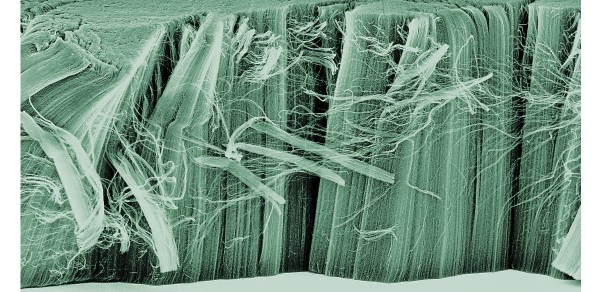
The multi-million pound 5 year project sponsored by Lloyd’s Register Foundation follows the publication of the LRF’s Foresight review in nanotechnology: the next industrial revolution. The Foundation opened an international call for proposals in August 2014 and this grant was one of three awarded.
Our scientific aims are to demonstrate the efficacy of nanostructured wires using novel manufacturing processes as current carriers.
Professor Sir Mark Welland
Lloyd’s Register Foundation funds the advancement of engineering-related education and research and supports work that enhances safety of life at sea, on land and in the air.
The project is entitled Nanotechnology in subsea power infrastructure. Along with its collaborators; National University of Singapore, Texas A&M University, The Institute of Occupational Medicine and Kaneka Holdings, this work will explore the potential of copper/carbon nanotube metal matrix composites in the fabrication of electrically conductive materials with enhanced properties for use in subsea power transmission applications.
Professor Sir Mark Welland commented: “We are delighted to receive one of the very first nanotechnology grants from Lloyd’s Register Foundation. The combination of the University of Cambridge, National University Singapore, Texas A&M University, The Institute of Occupational Medicine and Kaneka Holdings makes for a unique and prestigious collaboration to address the challenges of this project. Our ultimate aim is to improve efficiency at which electricity is transmitted across the world but our scientific aims are to demonstrate the efficacy of nanostructured wires using novel manufacturing processes as current carriers.”
Professor Richard Clegg the Foundation’s Managing Director said: “We are delighted to support this consortium led by the University of Cambridge. Their project will help take this exciting technology from the bench towards its real-life application, and in doing so will test how these composites can be used in applications to enhance safety of life and property.”
Notes to editors
The Foundation’s publication, Foresight review in nanotechnology: the next industrial revolution, can be downloaded from the website at http://www.lrfoundation.org.uk/news/2014/nanotechnology-review.aspx
About the Lloyd’s Register Foundation
The Lloyd’s Register Foundation: Connecting science, safety and society
The Lloyd’s Register Foundation is a UK charity, established in 2012, which funds the advancement of engineering-related education and research and supports work that enhances safety of life at sea, on land and in the air. It is funded by the profits of its trading arm, Lloyd’s Register Group Limited, a global engineering, technical and business services organisation.
Its vision is to be known worldwide as a leading supporter of engineering-related research, training and education that makes a real difference in improving the safety of the critical infrastructure on which modern society relies. In support of this, it promotes scientific excellence and act as a catalyst working with others to achieve maximum impact.
The Lloyd’s Register Foundation’s strategy for 2014-2020 focuses funding on four strategic themes: promoting safety and public understanding of risk; advancing skills and education; supporting excellent scientific research; and accelerating the application of research. Four research themes have been prioritised: structural integrity and systems performance; resilience engineering; human and social factors; and emergent technologies. See more at: www.lrfoundation.org.uk/strategy
In the first full year of operation as the Lloyd’s Register Foundation, the charity awarded grants of £16.8 million, funding 20 research programmes in 40 centres in 13 countries, including Finland, Norway, Finland, Canada, China, USA, South Korea, Netherlands, Singapore, Greece, Australia, Brazil, South Africa and UK. Specific research being undertaken includes marine and offshore deep water engineering, geotechnics, materials performance, transport systems, environmental, Arctic shipping and nuclear energy.
For further information:
Sue Murkett
The Nanoscience Centre, University of Cambridge.
Email: sm330@cam.ac.uk
Tel: 01223 760304

